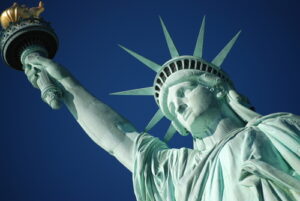Why Macron’s Call for EU Boycotts Signals a Shift in Global Economic Alliances

Image Source: Armstrong Economics
In an unexpected turn of events, French President Emmanuel Macron has ignited a firestorm by encouraging the European Union (EU) to re-evaluate their dependence on American-made products, particularly in defense. As discussions unfold, it’s clear that this isn’t just a rallying cry for a trade dispute; it’s a sign of a broader shift in economic positioning and geopolitical alliances.
A Call to Action for European Leaders
During a recent address to EU leaders, Macron articulated his ambitions to move away from the longstanding practice of purchasing U.S. defense products. “My intention is to go and convince European states that have become accustomed to buying American,” he declared emphatically. This rhetoric aligns with a growing sentiment among EU nations that they need to prioritize and bolster their own military manufacturing capabilities, especially in light of current global tensions.
Countries currently investing in U.S. systems like the Patriot missile should consider alternatives like the Franco-Italian SAMP/T, while those contemplating F-35 purchases should be steered toward the Rafale fighter jet, Macron argues. This isn’t merely about nationalism; it’s a calculated strategy to enhance France’s and the EU’s defense production capacity.
The Broader Implications of Macron’s Vision
Yet, Macron’s focus on re-arming Europe is part of a larger narrative concerning the U.S.’s diminishing influence on the global stage. European Commission President Ursula von der Leyen has also advocated for directing new defense loans towards European manufacturers, proposing a staggering €150 billion ($163 billion) fund for member states. This is indicative of a regional power play that not only seeks to enhance defense but also economic sovereignty.
Moreover, Macron’s criticism isn’t limited to defense. European discontent is palpable as leaders reflect on U.S. withdrawal from various global initiatives such as the Paris Climate Accord and international health organizations. The fallout from these actions feeds into widespread frustration within the EU, further solidifying a sense of collective identity distinct from the U.S.
The Underlying Friction with the U.S.
French MEP Raphaël Glucksmann exacerbated tensions when he provocatively demanded the U.S. return the Statue of Liberty, suggesting that America no longer upholds the values that the statue represents. This type of rhetoric is not just symbolic; it encapsulates a growing feeling of betrayal among European leaders, who have perceived America’s shift in focus—particularly under former President Trump—as a rejection of cooperative global governance.
Trump himself once remarked, “Look, let’s be honest, the European Union was formed in order to screw the United States.” It’s evident that the tensions between the U.S. and Europe have crystallized around not just political disagreements, but profound cultural and ideological rifts.
What’s Next for EU Economic Policy?
As the EU navigates this uncharted territory, one key takeaway is the urgency for member states to cultivate self-sufficiency. This desire to pivot away from American dependence could lead to innovative developments in technology and defense within Europe, opening up new markets and enhancing regional collaboration.
At Extreme Investor Network, we delve deeper into these economic dynamics and analyze how shifts like Macron’s may impact global investment strategies. Are we witnessing the dawn of a new economic era where regional alliances take precedence over traditional superpower influences? Stay updated with us as we explore the implications of these geopolitical movements on investment opportunities and global markets.
In conclusion, Macron’s bold stance and the EU’s subsequent call-to-action may well mark the beginning of a significant realignment in international relations, one that investors should keep a vigilant eye on. Are you prepared to navigate the new economic landscape? Join us as we uncover the insights and strategies needed to thrive in this evolving world.

